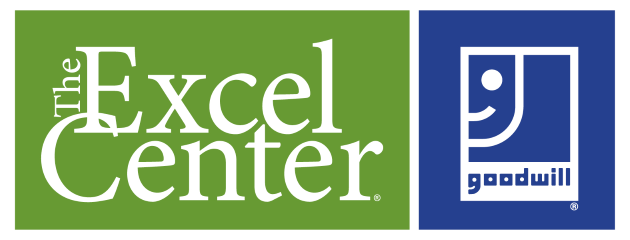Goodwill Industries of the Chesapeake is opening the doors to a new tuition-free adult high school in Baltimore, called the Excel Center this September. On The Record radio host Sheilah Kast interviews Goodwill CEO Lisa Rusyniak and two prospective students about how the Excel Center offers Baltimore residents a second chance to get their high school diploma and a path to a better future.
Kast notes that before the Excel Center opened its doors, hundreds of prospective students expressed interest in applying, which begged the question: “Why such pent-up demand?”
Rusyniak explains that interest in a free adult high school was so high because Baltimore City has an estimated 80,000 residents who don’t have a high school diploma. She says the Excel Center “will combine a continuum of services, starting with life coaches and case managers who will help people recognize and figure out how to address barriers in their lives that might preclude them from becoming successful in the workplace.”
Whether they need housing assistance, substance abuse recovery services, or any other kind of social service, the Excel Center will provide students with resources to help them attain balance and stability, notes Rusyniak.
Once students are accepted to the Excel Center, they can design a curriculum that’s very flexible for their schedule. Students can also simultaneously enroll in a skills-training program that leads to an industry-recognized credential or a pre-apprenticeship program.
The Excel Center’s drop-in daycare service is a big benefit for students with children. “If they have small children they can drop them off right on site and be with them throughout the day,” Rusyniak says.
After students graduate, Rusyniak adds, Goodwill will work with them to secure a job that earns family-sustaining wages. “We have prepared our skills-training programs to be in those fields where employers need folks, but they’re higher paying jobs, middle-skill jobs that lead to a career, not just a job,” she notes.
High School Diploma Alternatives Are Less Appealing
Why can’t people who lack a high school diploma just get a GED? Rusyniak explains that while a GED is a good solution for some people, it consists of four academic tests — in science, language, social studies and math — that have to be taken all at once. “You can basically just learn how to take the test and it can be pretty overwhelming and daunting,” Rusyniak says.
By contrast, she explains, the Excel Center program can last up to 16 months and is self paced. Classes can be staggered to meet each individual’s needs without putting them under intense test pressure.
There’s also the National External Diploma Program, which requires that a student already test at a ninth-grade level in reading and math — a barrier for some individuals. But Excel Center students can be of any age, no matter how many credits they need to get through.
Goodwill is launching the Excel Center with 150 available spots this first year, with plans to expand to 350 in the future. “As we grow and as we demonstrate that this model works in Maryland, we hope that more funding will be available,” says Rusyniak.
Goodwill is using the Excel Center model not only to provide educational and career-training opportunities for residents but ultimately to “make a dent in poverty in Baltimore.”
Prospective Students Are Excited About the Baltimore Excel Center
Kast also interviews two prospective Excel Center students, whom she notes both individually left high school to care for a baby — but generations apart: Jennifer Martinez is 24, while Lorraine Giddens is 60.
Lorraine left school four decades ago to care for the first of her seven children. Kast asks Lorraine why she feels she needs a high school diploma after having raised seven kids and accomplishing so much in life. Lorraine explains that there are things she wants to do for herself, but she also wants to help others — and for that she needs more education.
Lorraine hopes to get her diploma in one year. She has held a number of jobs outside the home while raising her children — all of whom graduated from high school — including working in daycare, housekeeping, nursing, and as a school teacher’s aide. She has significant hands-on experience working with children, but lacks the “piece of paper” — the diploma — that serves as proof of her knowledge.
Jennifer, who left school five years ago when she had her son, also now has a one-year-old daughter. Jennifer wants to get her diploma to set an example for her children. Many of her family members also dropped out of high school, so she wants her kids to know they need to get their diploma in order to succeed. After getting her diploma, Jennifer plans to go to college for a nursing certificate.
Jennifer is most worried about having someone take care of her daughter while she is going to school. Her son is about to start kindergarten, but she is relieved to know that her daughter can go to daycare at the Excel Center while Jennifer is in class.
Listen to the full interview on WYPR 88.1 FM Baltimore.
Apply to the Baltimore Excel Center here: https://excelcentermd.org



